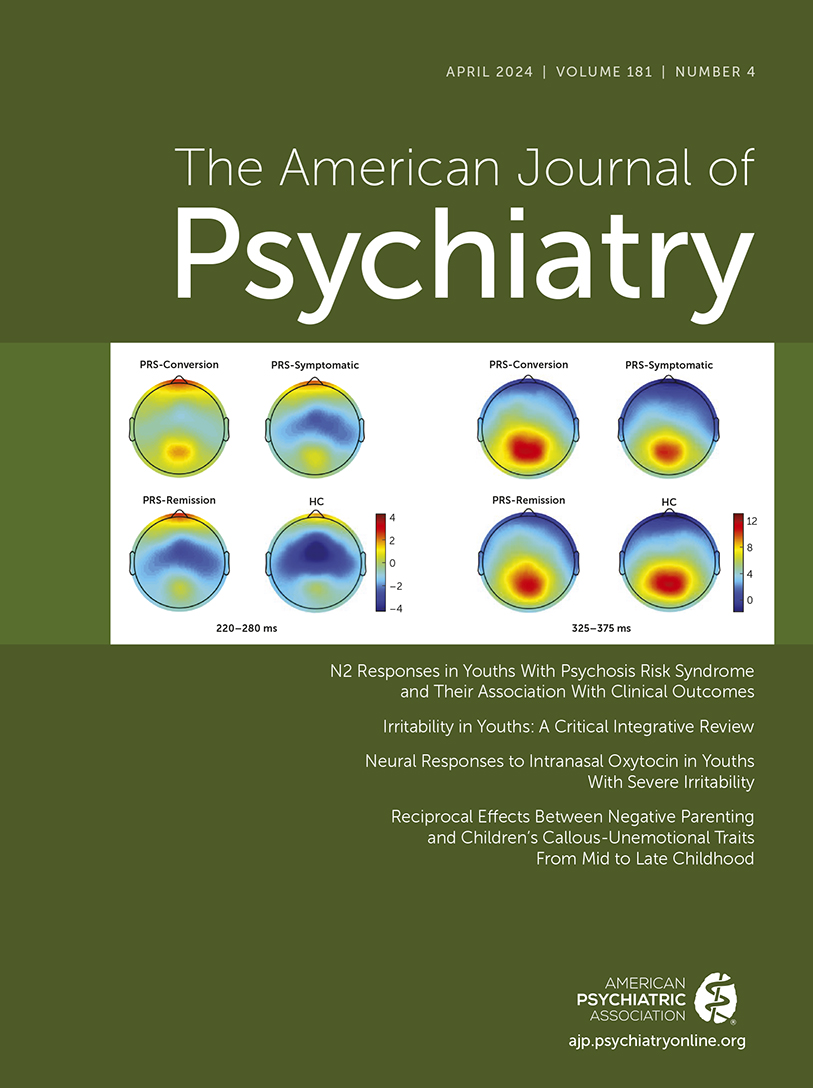Abstract
Objective:
The authors investigated the neural impact of intranasal oxytocin on emotion processing areas in youths with severe irritability in the context of disruptive mood and behavior disorders.
Methods:
Fifty-two participants with severe irritability, as measured by a score ≥4 on the Affective Reactivity Index (ARI), with diagnoses of disruptive behavior disorders (DBDs) and/or disruptive mood dysregulation disorder (DMDD) were randomly assigned to treatment with intranasal oxytocin or placebo daily for 3 weeks. Assessments were conducted at baseline and at the end of the trial; the primary outcomes were measures of irritability on the ARI and ratings on the Clinical Global Impressions severity scale (CGI-S) focusing on DBD and DMDD symptoms, and secondary outcomes included the CGI improvement scale (CGI-I) and ratings of proactive and reactive aggressive behavior on the Reactive-Proactive Aggression Questionnaire. Forty-three participants (22 in the oxytocin group and 21 in the placebo group) completed pre- and posttreatment functional MRI (fMRI) scans with the affective Stroop task.
Results:
Youths who received oxytocin showed significant improvement in CGI-S and CGI-I ratings compared with those who received placebo. In the fMRI data, blood-oxygen-level-dependent (BOLD) responses to emotional stimuli in the dorsomedial prefrontal cortex and posterior cingulate cortex were significantly reduced after oxytocin compared with placebo. These BOLD response changes were correlated with improvement in clinical severity.
Conclusions:
This study provides initial and preliminary evidence that intranasal oxytocin may induce neural-level changes in emotion processing in youths with irritability in the context of DBDs and DMDD. This may lead to symptom and severity changes in irritability.
Access content
To read the fulltext, please use one of the options below to sign in or purchase access.- Personal login
- Institutional Login
- Sign in via OpenAthens
- Register for access
-
Please login/register if you wish to pair your device and check access availability.
Not a subscriber?
PsychiatryOnline subscription options offer access to the DSM-5 library, books, journals, CME, and patient resources. This all-in-one virtual library provides psychiatrists and mental health professionals with key resources for diagnosis, treatment, research, and professional development.
Need more help? PsychiatryOnline Customer Service may be reached by emailing [email protected] or by calling 800-368-5777 (in the U.S.) or 703-907-7322 (outside the U.S.).



